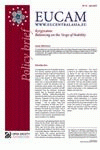Human Security in Central Asia: Can the EU Help out?
Human Security in Central Asia: Can the EU Help out?
Author(s): Sébastien Peyrouse
Subject(s): Civil Society, Government/Political systems, International relations/trade, Security and defense, Sociology of Politics
Published by: CEPS Centre for European Policy Studies
Keywords: Central Asia; European Union; human security; government; security and defense; regime; democracy;
Summary/Abstract: Among the many challenges facing the Central Asian states, security is one of the most pressing concerns. Yet the way these states discuss the issue is significantly affected by external actors’ approaches to security in the region. Russia and China are the two most influential countries in shaping the security strategies of the Central Asian governments, through bilateral relations and multilateral organisations such as the CSTO (Collective Security Treaty Organisation) and the SCO (Shanghai Cooperation Organisation). However, this does not mean that Kazakhstan, Kyrgyzstan, Tajikistan, Turkmenistan and Uzbekistan are “victims” of Russian and Chinese authoritarian pressure, without which they would take a more democratic approach. Even Russian influence, although much stronger in this area than China’s, cannot by itself explain the security decisions of the Central Asian regimes, as these decisions are chiefly driven by domestic issues and local political culture.
Series: EUCAM - Policy Brief
- Page Count: 5
- Publication Year: 2011
- Language: English
- Content File-PDF

